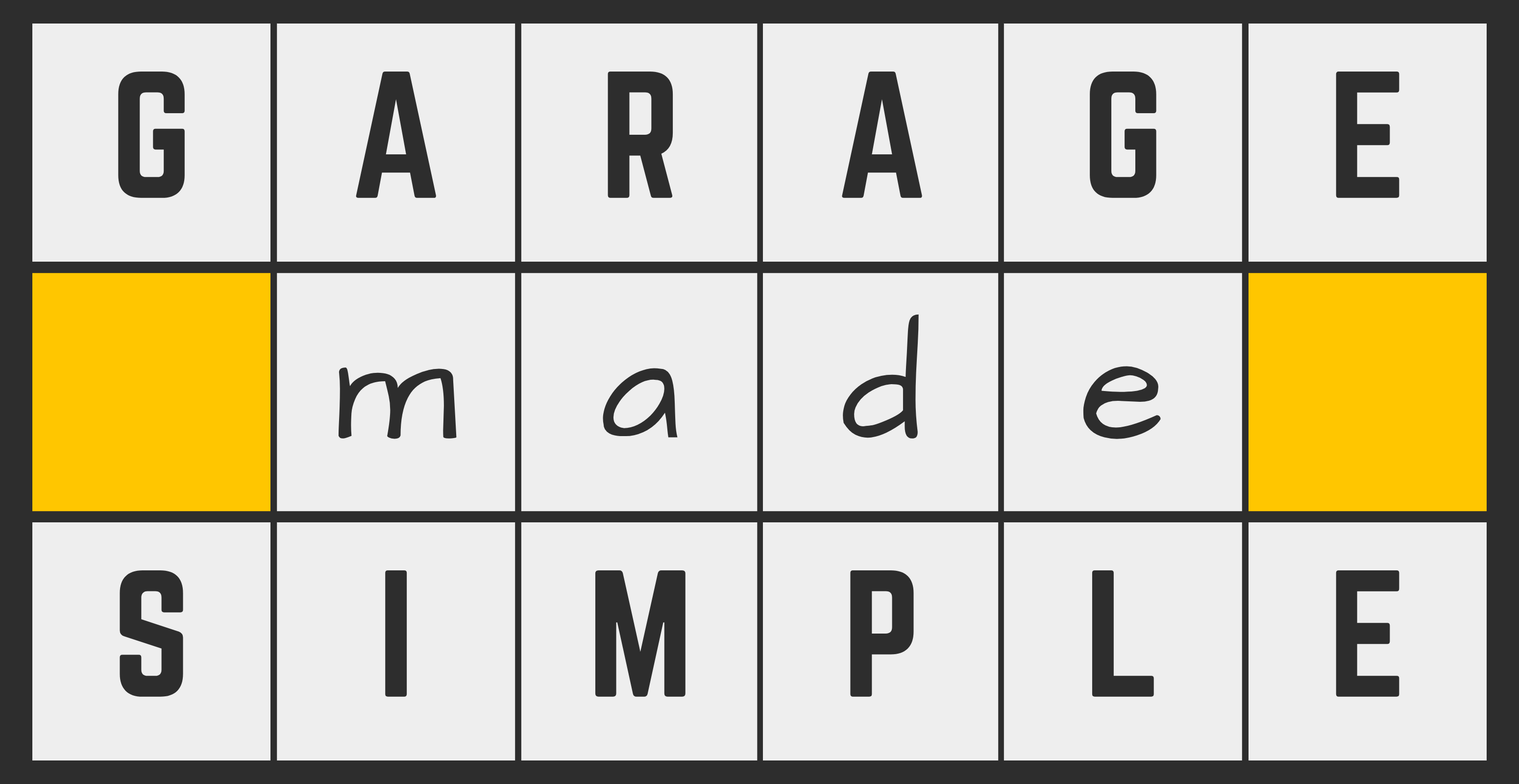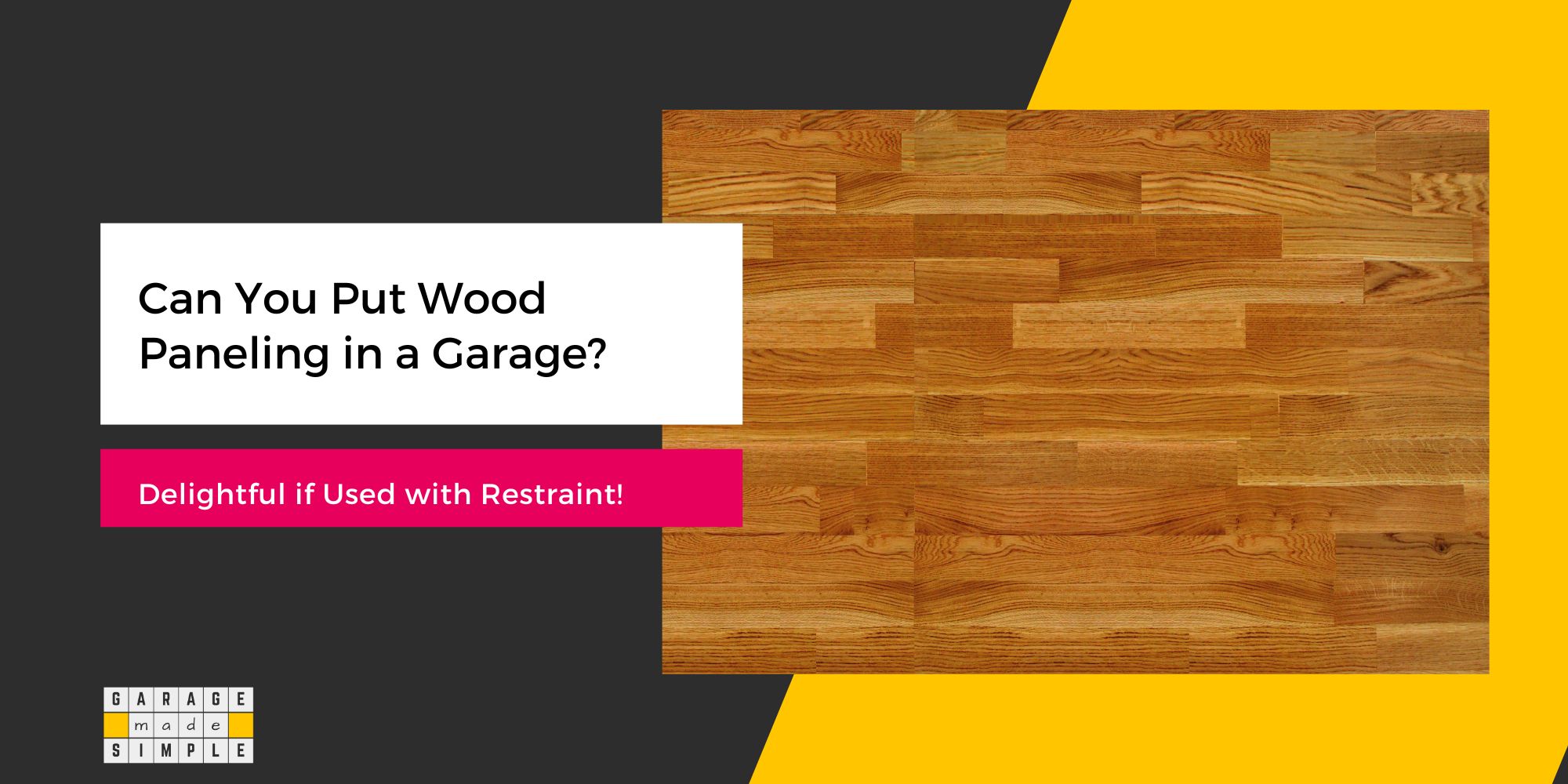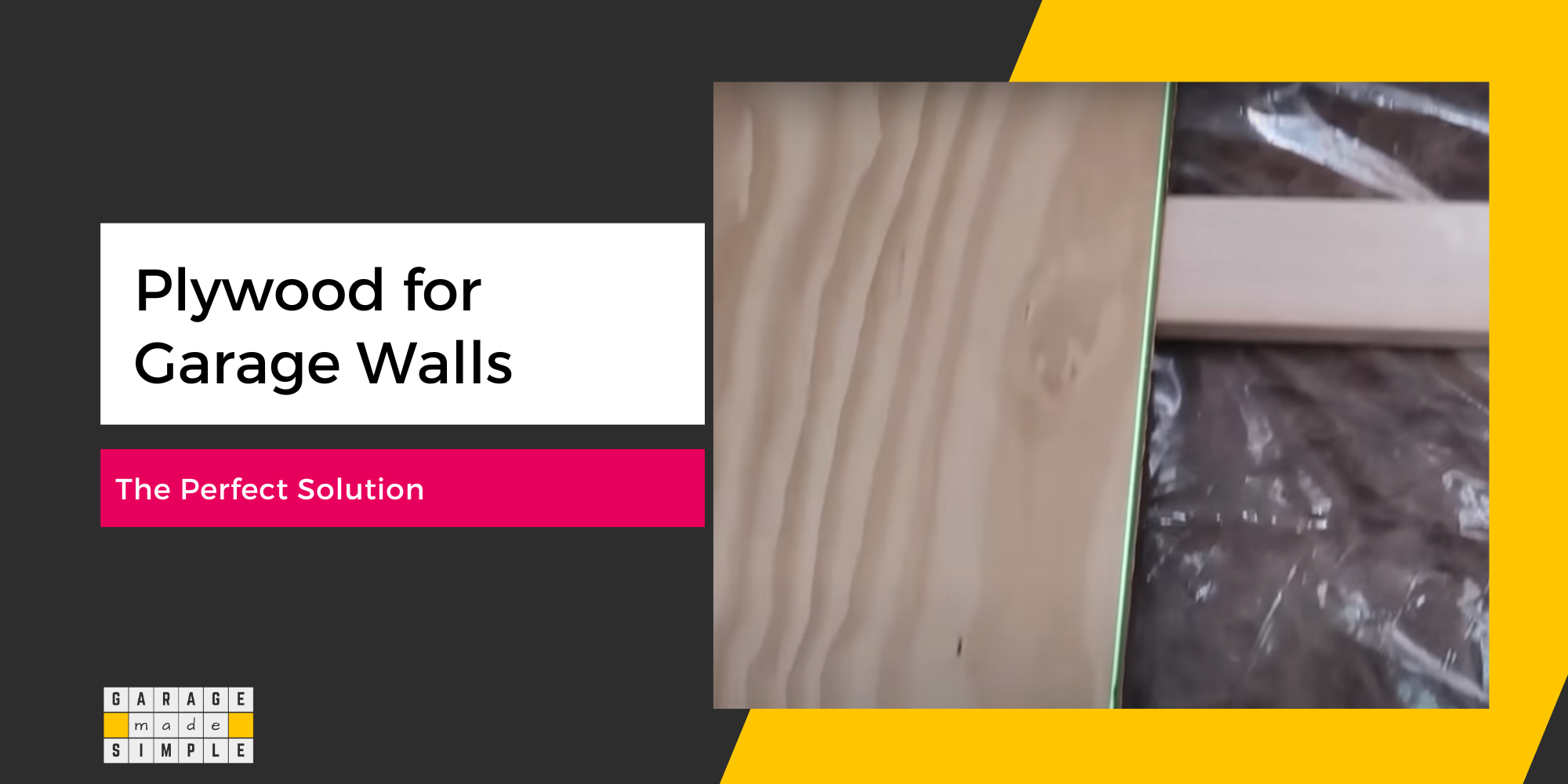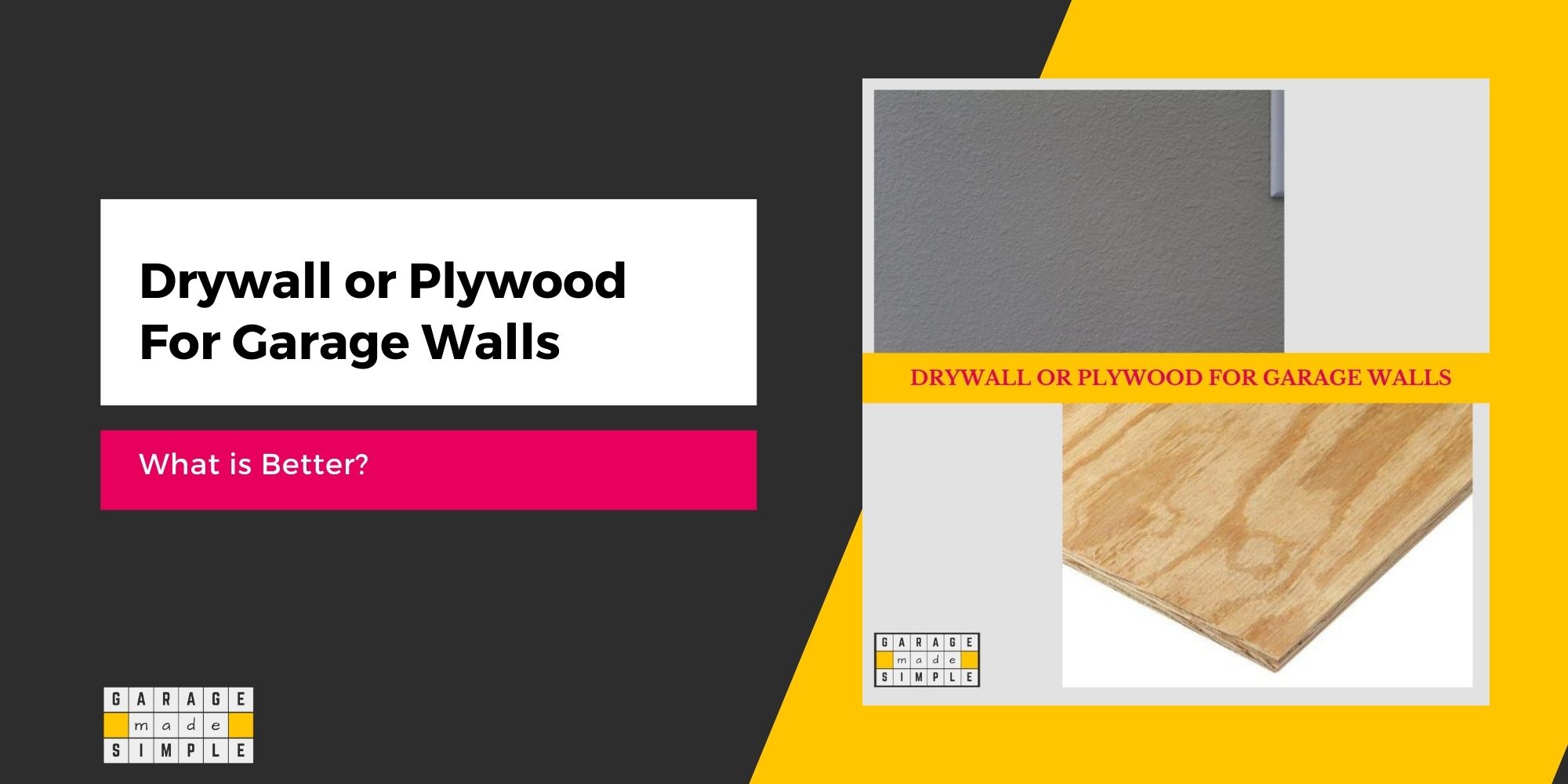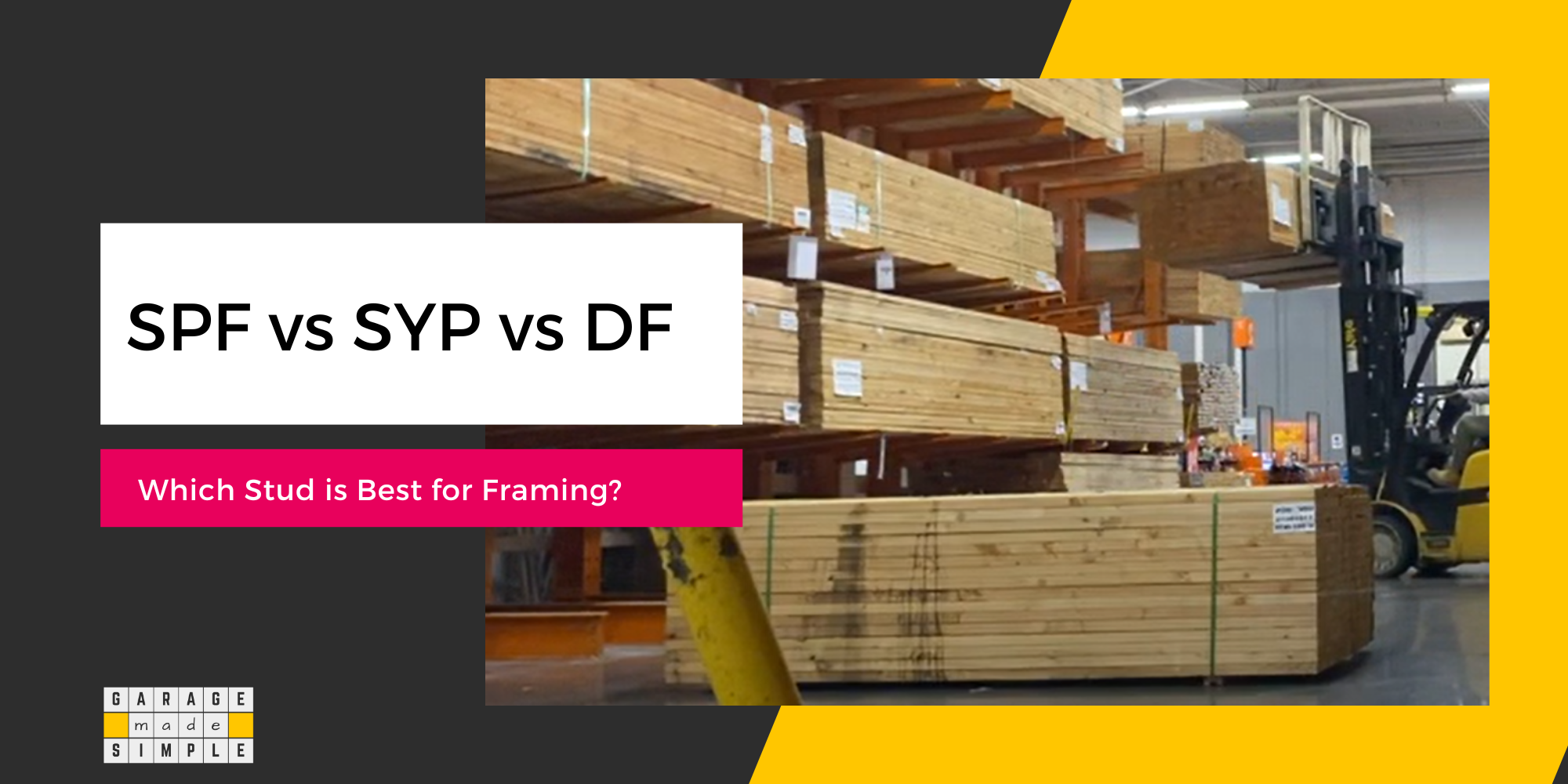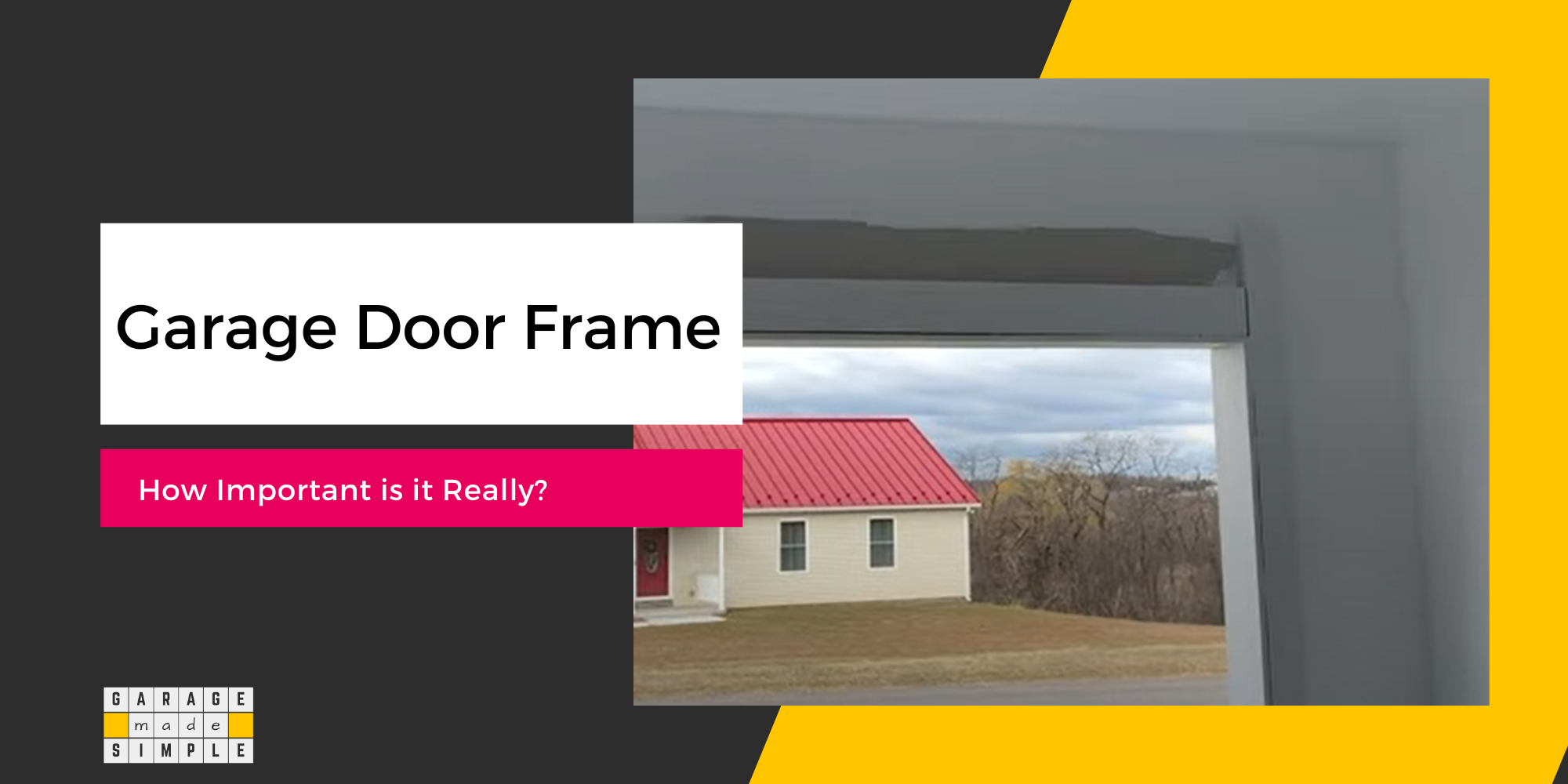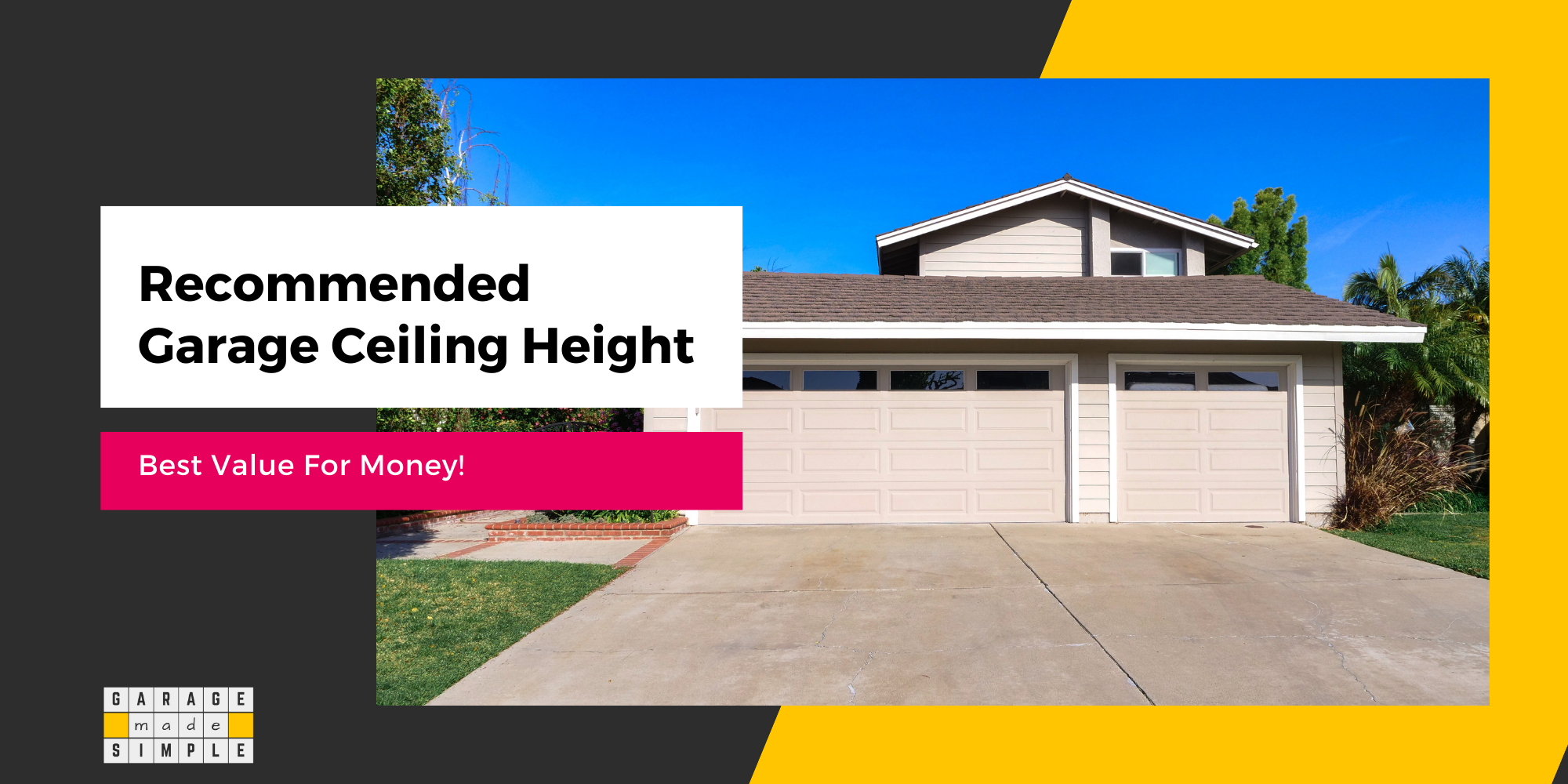What is the Best Drywall for Garage? (Cheat Sheet & Guide!)
garagemadesimple.com is a participant in the Amazon Services LLC Associates Program, an affiliate advertising program designed to provide a means for sites to earn advertising fees by advertising and linking to Amazon.com . The website is also an affiliate of a few other brands.
What is the Best Drywall for Garage?
Whether it’s a new project or a remodel, choosing only the best drywall for garage will let you breathe life into it. With various brands and types offering distinct features and price points, the task can be somewhat daunting.
Here I dive deep into desirable features, code requirement and suggest the best drywall for garage that will meet your needs.
The short answer is that the best drywall for garage (Sheetrock Brand) is:
- Non Code Compliant but Maximum Economy: 1/2″ thick Ultralight Drywall
- Code Compliance & at Moderate Price: 5/8″ thick EcoSmart Firecode X Drywall
- Non Code Compliant but Mold Resistant & at Moderate Price Level: 1/2″ thick UltraLight MoldTough Drywall
- Code Compliant, Mold Resistant but Costly: 5/8″ thick MoldTough Firecode X Drywall
And I also have a cool cheat sheet!
Cheat Sheet: Best Drywall for Garage
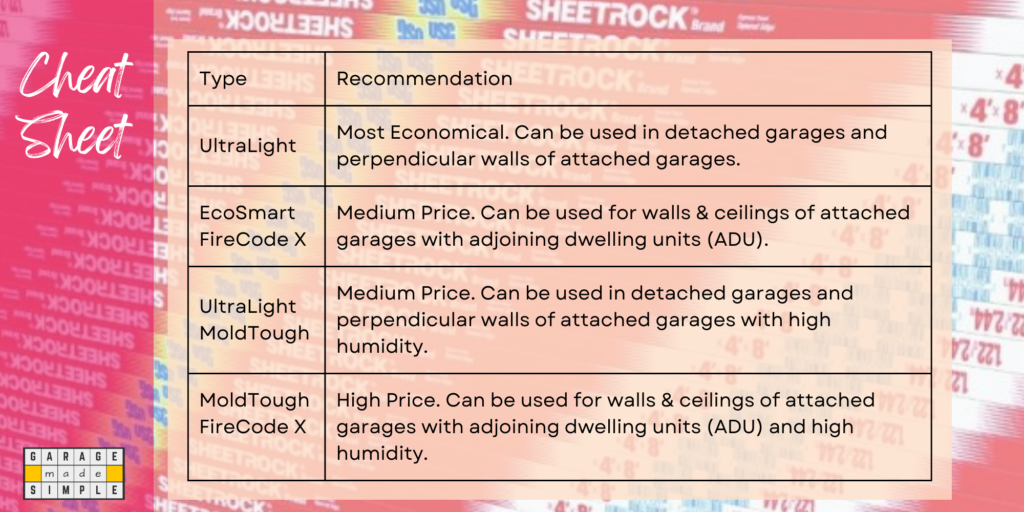
The drywall for walls & ceilings that have an adjoining dwelling unit (ADU) must comply with the drywall for garage code. This applies to both, an attached garage and a detached garage with attached living quarters.
The drywall for garage code is not applicable to walls & ceilings that do not have an adjoining dwelling unit (ADU). This applies to both attached & detached garages.
Drywall is a panel made from gypsum, sandwiched between two specially coated paper sheets. Drywall is used as sheathing for interior walls & ceilings. The drywall is affixed to the metal or wood studs using either nails or screws.
Sheetrock is a brand of drywall. However, all drywall is not sheetrock.
What Are the Different Types of Drywall?
The different types of drywall refer to the predominant property of the drywall in question. There are 5 important types of drywall that are available in the market.
1. Standard Drywall
As the name suggests, standard drywall does not have any outstanding or notable features. It is good enough to function as sheathing on most interior walls & ceilings.
Standard drywall is the most popular drywall type, as it can be used in most application areas and is the cheapest.
2. Fire Resistant Drywall
Fire resistant drywall is sometimes referred to as fireproof drywall. However, “fire resistant” is not the same as “fireproof”. Having said that, fire resistant drywall which is ⅝” thick will comply with Section R302.6 and Table R302.6 of The 2021 International Residential Code (IRC).
The garage shall be separated as required by Table R302.6. Openings in garage walls shall comply with Section R302.5. Attachment of gypsum board shall comply with Table 702.3.5. The wall separation provisions of Table 302.6 shall not apply to garage walls that are perpendicular to the adjacent dwelling unit wall.
Table R302.6
| Separation Material | Requirement |
| From the residence and attics | Not less than ½-inch gypsum board or equivalent applied to the garage side |
| From all habitable rooms above the garage | Not less than 5⁄8-inch Type X gypsum board or equivalent |
| Structure(s) supporting floor-ceiling assemblies used for separation required by this section | Not less than ½-inch gypsum board or equivalent |
| Garages located less than 3 feet (914 mm) from a dwelling unit on the same lot | Not less than ½-inch gypsum board or equivalent applied to the interior side of exterior walls that are within this area |
The local building drywall for garage code is usually an exact copy of the above IRC code. Some local building codes may add to the above code for greater clarity or strictness.
Other pretty good sheathing options are plywood, OSB, Cement Board & Metal Panels.
3. Moisture Resistant Drywall
Moisture resistant drywall is sometimes referred to as waterproof drywall. This is not correct either. “Moisture Resistant” is not the same as “Waterproof”.
There are no waterproof drywalls in the market, only moisture resistant.
Moisture resistant drywall is ideal for areas with high humidity. The paper in the case of moisture resistant drywall is replaced by a special paperless coating, which resists the migration of moisture and discourages mold growth.
Moisture resistant drywall is highly recommended for bathrooms, kitchens, laundry rooms, basement and utility rooms. They are a good option for your garage, if the foundations have not been waterproofed and you expect high humidity in your garage.
4. Mold Resistant Drywall
Mold resistant drywall is similar to moisture resistant drywall as it also features paperless backing and special coating. Mold resistant drywall helps prevent the growth of mold in high humidity zones.
Mold resistant drywall is especially useful in kitchens where hygiene is extremely important. It is often used in bathrooms and basements as well.
5. Soundproof Drywall
Soundproof drywall is typically two gypsum layers which are glued together with a special noise dampening adhesive. The use of soundproof drywall is quite limited. However, as you can imagine, it is the right drywall for music studios, auditoriums etc.
Soundproof drywall would be a good choice if your garage has a workshop that is particularly noisy. You do not want your spouse or neighbor to complain!
What Size Drywall Is Best for Walls?
Drywall boards are typically 4’ wide. The most common length is 8’ and it is the most economical.
Garage walls are usually 8’ high and 20’ or 24’ long. Garage wall stud spacing is 16” OC (on center). The drywall size of 4’X8’ is quite convenient as it matches perfectly with the garage wall dimensions. There is minimal wastage.
You can also get drywall in lengths of 10’ or 12’, but you won’t be needing them unless you have an unusually high garage ceiling.
What Thickness of Drywall Is Best for Garage Walls?
You can get drywall which are ¼” or ⅜” thick. However, these are too thin and weak for sheathing of garage walls. They are more suitable for decorative finishes such as a skim layer over existing sheathing or to create curves.
For garage walls you will need to use ½” or ⅝” thick drywall. Drywall that is ½” thick will rarely be fire resistant. However, it can be used if you do not require a fire resistant sheathing.
Drywall that is ⅝” thick is usually fire resistant. This thickness and the fire rating is necessary on garage walls & ceilings that need to comply with the code.
How to Choose the Drywall Type for your Garage?
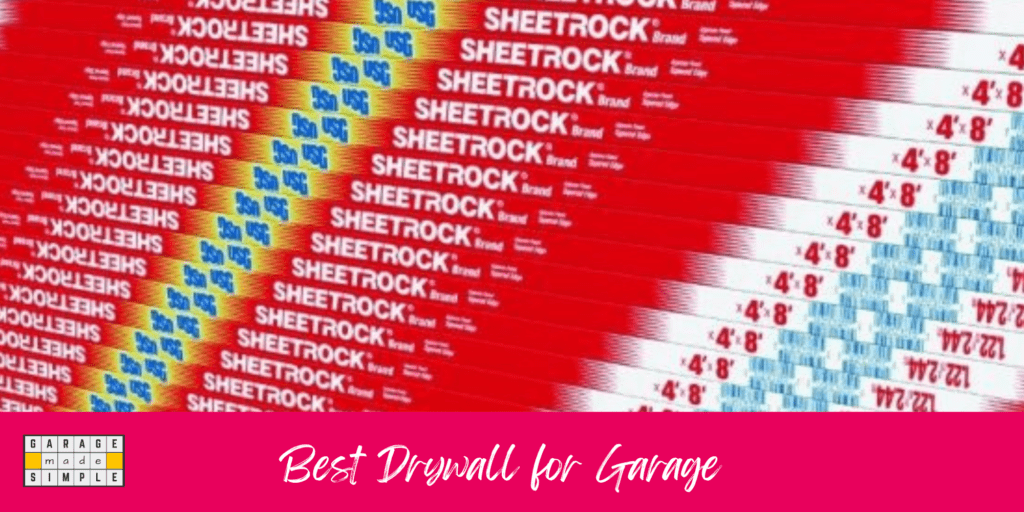
The table below can be used to pick the best drywall type for your garage.
USG Sheetrock 4’X8’ Comparison Table (Source: Home Depot)
| Type | UltraLight | EcoSmart FireCode X | UltraLight MoldTough | MoldTough FireCode X |
| Price | $13.88 | $17.73 | $17.98 | $23.33 |
| Thickness | ½” | ⅝” | ½” | ⅝” |
| Standard | * | |||
| Ultralight | * | * | * | |
| Fire Resistant | * | * | ||
| Mold Resistant | * | * | ||
| Moisture Resistant | * |
Prices may change based on date & location.
The Cheat Sheet
| Type | Recommendation |
| UltraLight | Most Economical. Can be used in detached garages and perpendicular walls of attached garages. |
| EcoSmart FireCode X | Medium Price. Can be used for walls & ceilings of attached garages with adjoining dwelling units (ADU). |
| UltraLight MoldTough | Medium Price. Can be used in detached garages and perpendicular walls of attached garages with high humidity. |
| MoldTough FireCode X | High Price. Can be used for walls & ceilings of attached garages with adjoining dwelling units (ADU) and high humidity. |
As you can see the best type of drywall for your garage depends a lot on whether you have an attached garage or a detached garage and also on how humid the environment, in and around the garage, will be.
Thank you very much for reading the post. I do hope you found it informative and useful.
